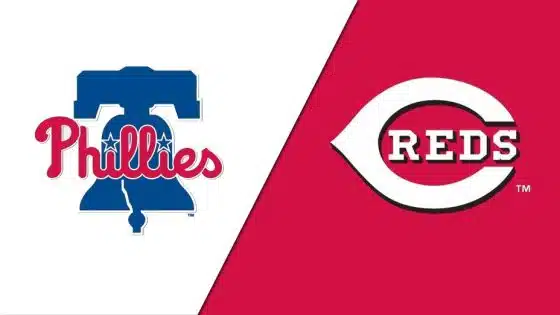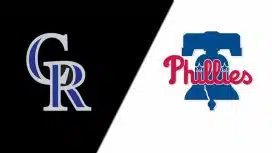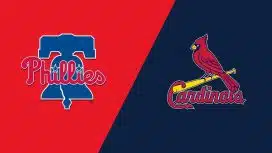By Josh Liddick, Sports Talk Philly Staff
While Curt Schilling will go down in history for his incredible runs to World Series championships in 2001 with the Arizona Diamondbacks, and 2004 when the Boston Red Sox finally broke the 86-year Curse of the Bambino, he is lesser known for playing a prominent role with the Philadelphia Phillies from 1992 to 2000.
Traded by the Houston Astros in 1992 in a one-for-one trade that sent Jason Grimsley from the Phillies to the Astros, the promising 25-year-old right-hander Schilling became a member of the Phillies team that would finish dead last in the National League East in his first season with the club.
Schilling played for the Astros in 1991, and was stuck in the bullpen as a middle of the road reliever. The Phillies acquired him in April 1992, and while he started out as a reliever, Schilling developed into a starter that would be feared for years to come.
Schilling started in 26 games for the Phillies in 1992, and eventually became a key contributor in the team's run to a National League pennant in 1993, where he finished 16-7 with 182 strikeouts.
Schilling was plagued with injuries in both 1994 and 1995, only starting in 30 games over the two seasons. Schilling became an important part of the Phillies rotation in the eight years he spent with the organization, and while his career will never be defined by his time in a Phillies uniform, Schilling spent some of his best young seasons playing in the City of Brotherly Love.
Career accomplishments
Schilling's career accomplishments as a member of the Phillies were spread out amongst his years on the team, with specific award recognitions coming into play towards the end of his Phillies stint.
Schilling was selected to the National League All-Star roster three times while on the Phillies, all in straight seasons from 1997 to 1999. In 1997, Schilling had his best season as a member of the Phillies starting rotation, starting in all 35 games he appeared in, gathering a 2.97 ERA in 254.1 innings pitched, while adding a entire career high 319 strikeouts to his impressive season resume.
In six of nine seasons played with the Phillies, Schilling finished with more than 10 wins.
Schilling's 101 wins as a Philadelphia Phillie puts him seventh all-time in the organization's history, trailing Cole Hamels by 13 wins. He also sits at fifth in team history for strikeouts with 1,554.
Schilling was inducted into the Phillies Wall of Fame in 2013.
Most memorable moment
Quite possibly the best and most important moment of Curt Schilling's Phillies career occurred very early on in his playing career. In Fall 1993, the Phillies were in the thick of making a run to make the Fall Classic, as they took on the Atlanta Braves in the National League Championship Series before the big stage.
While getting no decisions in both of the starts he had during the series, Schilling struck out 19 batters and accumulated a 1.69 ERA en route the Phillies upsetting the Braves to win the National League Pennant in 1993.
Schilling's performance allowed the Phillies to walk into a date with the Toronto Blue Jays and earned him the honor as the NLCS MVP.
This moment could also be paired with his Game 5, five-hit shutout of the Toronto Blue Jays in the World Series, which kept the series alive and forced a Game 6. The game also ended up being the final World Series game played at Veterans Stadium, which never saw another playoff game before being demolished in 2003.
Reasoning for ranking
Schilling scored 26 overall points on the scale, which is explained in-depth at the bottom of the post.
Schilling's score of 26 tied him with three others, including Cy Williams who came in at No. 21. The next two on the list, both of whom won World Series titles with the Phillies, were placed above Schilling based on the discretion of managing editor Tim Kelly and historical columnist Matt Albterson. Schilling was placed above Williams on the same tie-breaking grounds.
Schilling was a three-time All-Star with the Phillies, is seventh all-time in team wins, 33rd in ERA and has a total WAR of 36.8 with the team.
Certainly, had he spent his entire career with the team, he would have been higher on this list because he ended up with a career worthy of Hall of Fame consideration.
Explanation of scientific formula
The player rankings formula combines both traditional and advanced statistics/metrics and assigns a point total to each category. These statistics only reflect the player's Phillies career.
Previous entries to the countdown




